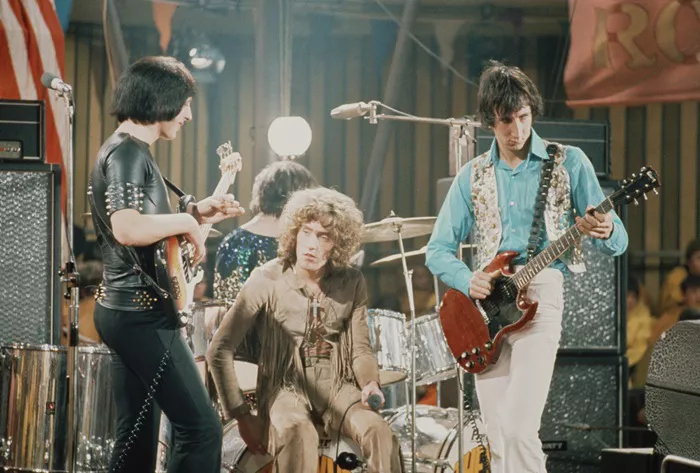In the realm of music genres, “dad rock” occupies a distinct space that resonates with a generation and a certain nostalgic charm. Often associated with classic rock bands and styles from the 1960s to the 1980s, dad rock encapsulates a specific sound and cultural identity that continues to influence contemporary music scenes. This article delves into the essence of dad rock music, its defining characteristics, notable bands and artists, its impact on popular culture, and its enduring appeal across generations.
Introduction to Dad Rock Music
Dad rock, as the name suggests, refers to a genre of rock music that typically appeals to older listeners, particularly those who grew up with the classic rock bands of the past decades. It embodies a sense of familiarity and comfort, often evoking memories of youth and a simpler time in music history. The term itself carries a mix of affection and sometimes mild derision, highlighting its association with middle-aged or older individuals who are nostalgic for the sounds of their youth.
Characteristics of Dad Rock
Dad rock is characterized by several distinctive features that set it apart from other genres:
Classic Rock Influences: It draws heavily from classic rock bands such as The Beatles, The Rolling Stones, Led Zeppelin, Pink Floyd, and The Who. These bands laid the foundation for the genre with their innovative music styles and lyrical themes.
Melodic and Catchy Hooks: Dad rock often features melodic guitar riffs, memorable choruses, and lyrics that resonate with themes of love, rebellion, and introspection. The songs are crafted to be accessible and easy to sing along to, contributing to their enduring popularity.
Emphasis on Album-Oriented Rock: Unlike singles-driven pop music, dad rock often focuses on full albums that tell a cohesive musical and thematic story. Albums like Pink Floyd’s “The Dark Side of the Moon” or Led Zeppelin’s “IV” are iconic examples of this approach.
Guitar-Centric Sound: The genre places a strong emphasis on guitars, both electric and acoustic, often featuring intricate solos and harmonies that showcase the musicianship of the band members.
Lyricism and Storytelling: Dad rock lyrics often delve into personal experiences, social commentary, and philosophical musings, reflecting the turbulent times in which many of these bands emerged.
Notable Bands and Artists
Several bands and artists have come to epitomize the dad rock genre due to their influence, longevity, and enduring popularity:
The Rolling Stones: Known for their bluesy rock sound and Mick Jagger’s charismatic vocals, The Rolling Stones have been a cornerstone of dad rock since the 1960s.
The Beatles: With their innovative songwriting and genre-defying albums, The Beatles set the stage for many dad rock bands to follow, influencing music across generations.
Led Zeppelin: Renowned for their heavy guitar riffs and dynamic compositions, Led Zeppelin remains a touchstone for dad rock enthusiasts.
Pink Floyd: Famous for their progressive rock sound and conceptual albums, Pink Floyd’s music continues to resonate with listeners seeking introspective and thought-provoking music.
The Who: Known for their energetic performances and Pete Townshend’s powerful songwriting, The Who’s music has left an indelible mark on dad rock and rock music in general.
Impact on Popular Culture
Dad rock’s impact extends beyond its musical characteristics to influence popular culture in various ways:
Fashion and Style: The imagery associated with dad rock often includes denim jeans, leather jackets, band t-shirts, and iconic hairstyles that have become timeless fashion statements.
Film and Television: Dad rock music frequently appears in soundtracks for movies and TV shows, contributing to its enduring presence in popular media.
Continued Influence on Newer Bands: Many contemporary rock bands draw inspiration from dad rock, incorporating its nostalgic sound and style into their own music.
Enduring Appeal and Legacy
Despite being labeled as “dad rock,” the genre’s appeal transcends age demographics. Its timeless quality and universal themes continue to attract new listeners while resonating deeply with long-time fans. The legacy of dad rock lies in its ability to evoke powerful emotions, spark memories, and serve as a bridge between generations through shared musical experiences.
See Also: Why is Rock Music in Peaky Blinders?
Conclusion
In conclusion, dad rock music represents more than just a genre—it embodies a cultural phenomenon that has shaped the musical landscape for decades. From its classic rock roots to its influence on contemporary music, dad rock remains a testament to the enduring power of melody, storytelling, and musical craftsmanship. Whether enjoyed nostalgically or discovered anew by younger audiences, dad rock continues to hold a special place in the hearts of music enthusiasts worldwide.
This article has explored the essence of dad rock music, its defining characteristics, notable bands and artists, its impact on popular culture, and its enduring appeal across generations. Through its exploration, one can appreciate the rich tapestry of sounds and stories that define this beloved genre.

